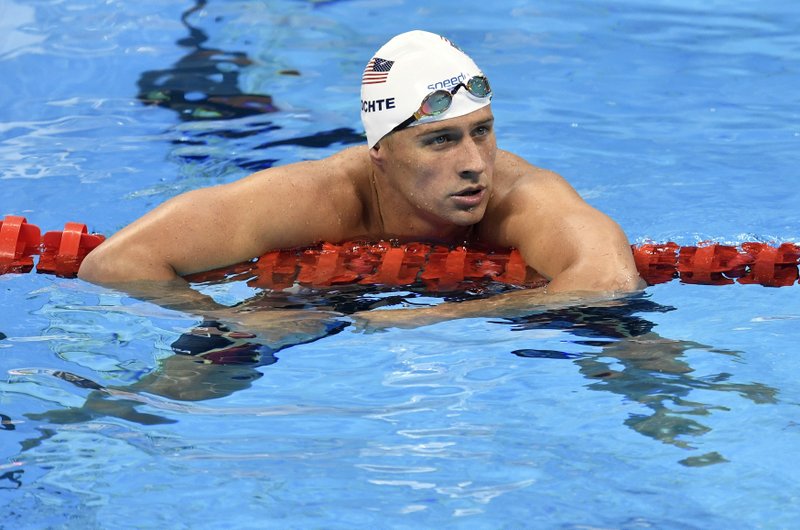RIO DE JANEIRO — U.S Olympic swimmer Ryan Lochte has apologized for his behavior surrounding a late-night incident at a Rio de Janeiro gas station, saying he should have been more "careful and candid" about how he described what happened.
Lochte said in a lengthy post on Instagram Friday that he was apologizing for his role in taking the focus away from other Olympic athletes.
The 12-time medalist reiterated his view that a stranger pointed a gun at him and demanded money to let him leave. Lochte had called it a robbery; Brazilian police said he and three other swimmers vandalized a gas station bathroom and were confronted by armed security guards.
"I accept responsibility for my role in this happening and have learned some valuable lessons," Lochte said.
Two of the other swimmers, Gunnar Bentz and Jack Conger, were on their way home Friday after being held in the country to testify. The fourth swimmer, Jimmy Feigen, made a deal with a Brazil judge to make a $10,800 payment and be allowed to leave the country later Friday, his lawyer said.
"We accept and appreciate his apology," said Mario Andrada, spokesman for the local organizers of the Rio Games.
The drama surrounding the alleged robbery — and the ever-changing descriptions of it by the swimmers — has shocked and deeply angered Brazilians, who said it cast a false negative shadow on their city and their Olympics at a time the country is eager to prove it can host the games safely. The story also dominated Olympic headlines, overshadowing the worthy accomplishments of athletes who trained for years just to get to Rio and set records during their performances. The saga was an enormous embarrassment for the U.S. Olympic team, which has dominated in the medal count.
The rapid-fire developments early Friday came hours after police announced that Lochte and three of his teammates had not been held at gunpoint after a night of partying, as Lochte claimed. Instead, Brazilian police said the men, while intoxicated, vandalized a gas station bathroom and were questioned by armed guards before they paid for the damage and left.
"No robbery was committed against these athletes. They were not victims of the crimes they claimed," Civil Police Chief Fernando Veloso told a news conference.
As Bentz and Conger, were whisked through airport security and onto a plane home Thursday night, their attorney insisted they had nothing to do with Lochte's story. Lochte himself left the country earlier this week.
Bentz and Conger "were heard only as witnesses. This has to be made very, very clear," lawyer Sergio Riera told The Associated Press. "They did not make any untruthful testimony. They did not lie in their statements."
A lawyer for another swimmer, James Feigen, said early Friday that the athlete reached an agreement with a judge in which he planned to donate 35,000 Brazilian reals ($10,800) to an "institution" and leave the country later in the day.
Attorney Breno Melaragno said under the agreement, Feigen will make the donation, get his passport back and depart.
Melaragno did not specify where the money will go, but his use of the term "institution" can be taken to mean a charity. He said that under Brazilian law, a donation can be made to avoid criminal prosecution for minor offenses, but did not say what charge was being contemplated.
